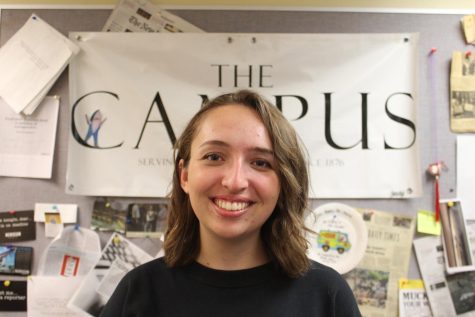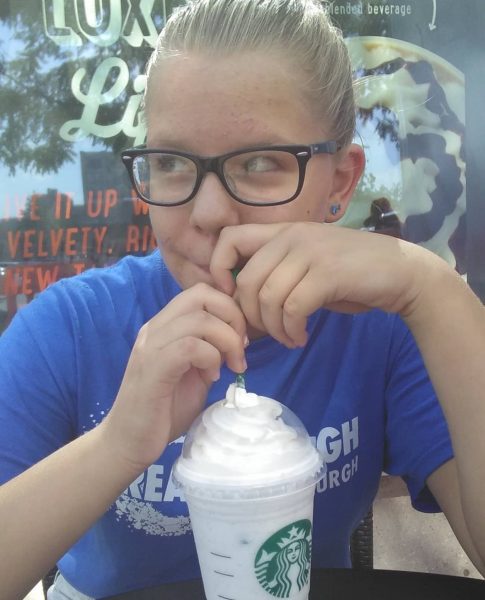YA? Why not?
For seven years, I became a verifiable expert in Young Adult literature. Roll your eyes all you want, book snobs.
I belonged to a book club through my public library from sixth grade until I graduated high school, a book club which exclusively read YA books. My membership in that club, combined with the fact that my mother is a middle school librarian, means that I have enough YA books at home to build a fortress — or at least an igloo. Yet, I took none of them with me to college and I very rarely talk about them.
Why? I think it has something to do with me trying to take myself seriously as an English major. I’ve always been a voracious reader, but I became deeply insecure about the type of books that I spend my secondary school years reading once I got to college and met all the over-prepared, Dostoevsky-and-Hemingway-toting professorlings who populated my humanities classes. I felt like I had unsophisticated literary tastes and this somehow made me unintelligent, a two-bit talent in a room of geniuses.
This, of course, is utter nonsense.
Categories are useful in certain situations. Grocery stores, for instance, would be an utter disaster without proper categorization and labeling. To an extent, libraries and bookstores benefit from the same system. But when we draw lines around the intellectual status of certain genres, we limit our potential and condescend to those whose taste is unlike our own.
In the case of YA, the genre suffers from a lesser status because it is primarily about and for teenagers, a group of people whose interests and passions are reasonably easy to invalidate and patronize. By the same token, YA books are often written in casual and accessible prose, a red flag in the world of literary snobbery. How could a novel possibly be filled with important themes and beautiful language if it is easy to read? The more snooty readers among us think that complex ideas can only be presented in complex packages, that anything worth reading must make the reader feel a certain level of page-by-page agony.
Think of it this way: reading books is like training for a race. Some books, like Joyce’s “Ulysses,” are long, hard, windy days on the trail. They’re the distance runs that seem like they will never end but ultimately make you feel fulfilled and proud of how far you’ve come as a runner. YA books are, to me, recovery days. They’re simpler. Slower. They put less strain on your muscles. Despite this, though, they still help you build your endurance. They still contribute to your growth as a runner — that is, as a reader and a thinker.
Though the bulk of my YA-reading days are long behind me, the fact remains that two of my all-time favorite books — that’s “A Northern Light” by Jennifer Donnelly and “Truly Devious” by Maureen Johnson, for those of you keeping score at home — fall into the YA genre. Why? Because the protagonist in both books is a sixteen-year-old girl. That’s really where their similarities stop — one takes place in the rural Adirondacks in 1906 and the other at an elite boarding school in present-day Vermont. One is a haunting gothic tale of grief and escape; the other is a suspenseful and witty murder-mystery. But, because both books center around the perspective of a teenage girl and are marketed to a similar demographic, they are lumped together into a category that, at this point, serves to demarcate work of “lesser” literary value.
Look around the YA section at your local bookstore and see just how many of those books fit into this category. Look at your library and ask yourself why these books are being separated into their own solitary shelf, away from prying eyes. Look at popular culture for the same condescension — someday, when I have more column inches, I will write about the reduction of “The Hunger Games” from a serious work of literary art to a teenybopper dystopia all because the protagonist is, once again, a sixteen-year-old girl. For now, however, we start thinking more carefully about how we categorize things — especially books — and subsequently judge those categories.
In my book — pun very much intended — anything that gets a non-reader reading is worth publishing. Every book has value, and the day that we start taking YA novels as seriously as we take Dickens or Tolstoy is the day that our little literary hearts will grow three sizes.
Until then, if anybody needs any good YA novel recommendations, you know where to find me.

Sydney Emerson is a member of the class of 2023. She is from Bradford, Pennsylvania and is an English major with a history minor.




Savannah • Dec 12, 2022 at 3:11 pm
YA isn’t a genre. Middle grade isn’t a genre. Adult isn’t a genre. You might see common themes in each of these age brackets, but it is not a genre. Fantasy, historical fiction, science fiction, those are genres.
I’m an avid YA reader and this is probably my biggest pet peeve.